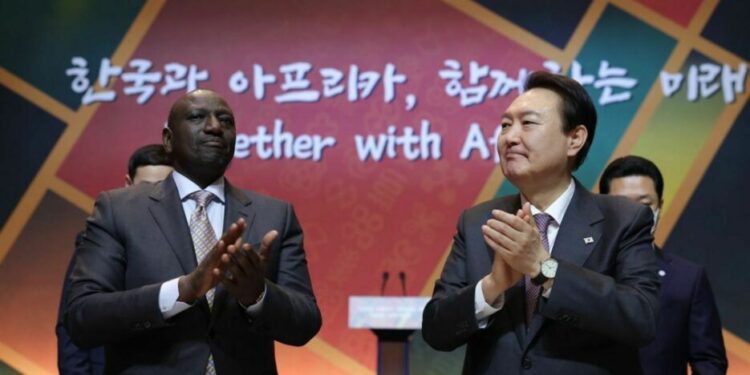South Korean President Yoon Suk Yeol’s recent invitation to host the first-ever summit with leaders from 48 African nations signifies a pivotal shift in South Korea’s foreign policy agenda. This unprecedented gathering serves as a platform to forge stronger economic and diplomatic ties with the African continent, a region rich in natural resources and untapped potential.
At the heart of Yoon’s initiative lies a strategic vision to secure a stable supply of critical minerals essential for South Korea’s burgeoning industries, including semiconductors and electric vehicles. With Africa holding 30% of the world’s reserves of vital minerals like chrome, cobalt, and manganese, collaboration with African nations presents a valuable opportunity to diversify South Korea’s supply chains and mitigate potential disruptions.
Beyond resource security, the summit also aims to bolster economic partnerships and trade between South Korea and African countries. Yoon pledged to increase development aid for Africa to $10 billion over the next six years, demonstrating South Korea’s commitment to fostering sustainable growth across the continent. Additionally, the provision of $14 billion in export financing for South Korean companies operating in African markets underscores the nation’s dedication to promoting investment and trade.
However, South Korea’s outreach to Africa extends beyond mere economic interests. President Yoon emphasized the importance of “shared growth” as a guiding principle for cooperation, acknowledging the vast potential of Africa’s young and dynamic population. By offering assistance in areas such as industrial infrastructure and digital transformation, South Korea seeks to position itself as a valuable partner in Africa’s development journey. Notably, South Korea’s approach to development cooperation differs from the models pursued by Western nations and China. As Park Jong-dae, a former South Korean ambassador to South Africa and Uganda, highlights, the Korean model prioritizes human development and capacity-building rather than mere financial assistance. This approach resonates with African nations seeking self-sustaining growth and empowerment. Furthermore, South Korea’s own experience in transitioning from a developing nation to an economic powerhouse serves as a compelling example for African countries aspiring to replicate similar success stories. By sharing its expertise in sectors like manufacturing, technology, and infrastructure development, South Korea can provide valuable insights and practical guidance to African partners.
The summit also presents an opportunity for South Korean businesses to explore new avenues for investment and partnerships across the African continent. With a combined population of 1.4 billion, the majority of whom are under the age of 25, Africa represents a vast and rapidly growing market for South Korean products and services. While the economic and strategic benefits are evident, South Korea’s outreach to Africa also carries symbolic significance. By elevating its engagement with African nations to an unprecedented level, South Korea is asserting its global influence and expanding its diplomatic footprint beyond traditional allies and partners.
As the summit unfolds, the world will be watching closely to see how South Korea navigates the intricate web of geopolitical interests and security concerns that often complicate relationships with African nations. Striking the right balance between economic cooperation, resource security, and respect for sovereignty will be crucial for the success of this endeavor.
Ultimately, South Korea’s strategic outreach to Africa represents a bold step towards reshaping global dynamics and fostering mutually beneficial partnerships. By leveraging its unique strengths and experiences, South Korea has the potential to emerge as a trusted partner for African nations, contributing to sustainable development and economic prosperity across the continent.
















